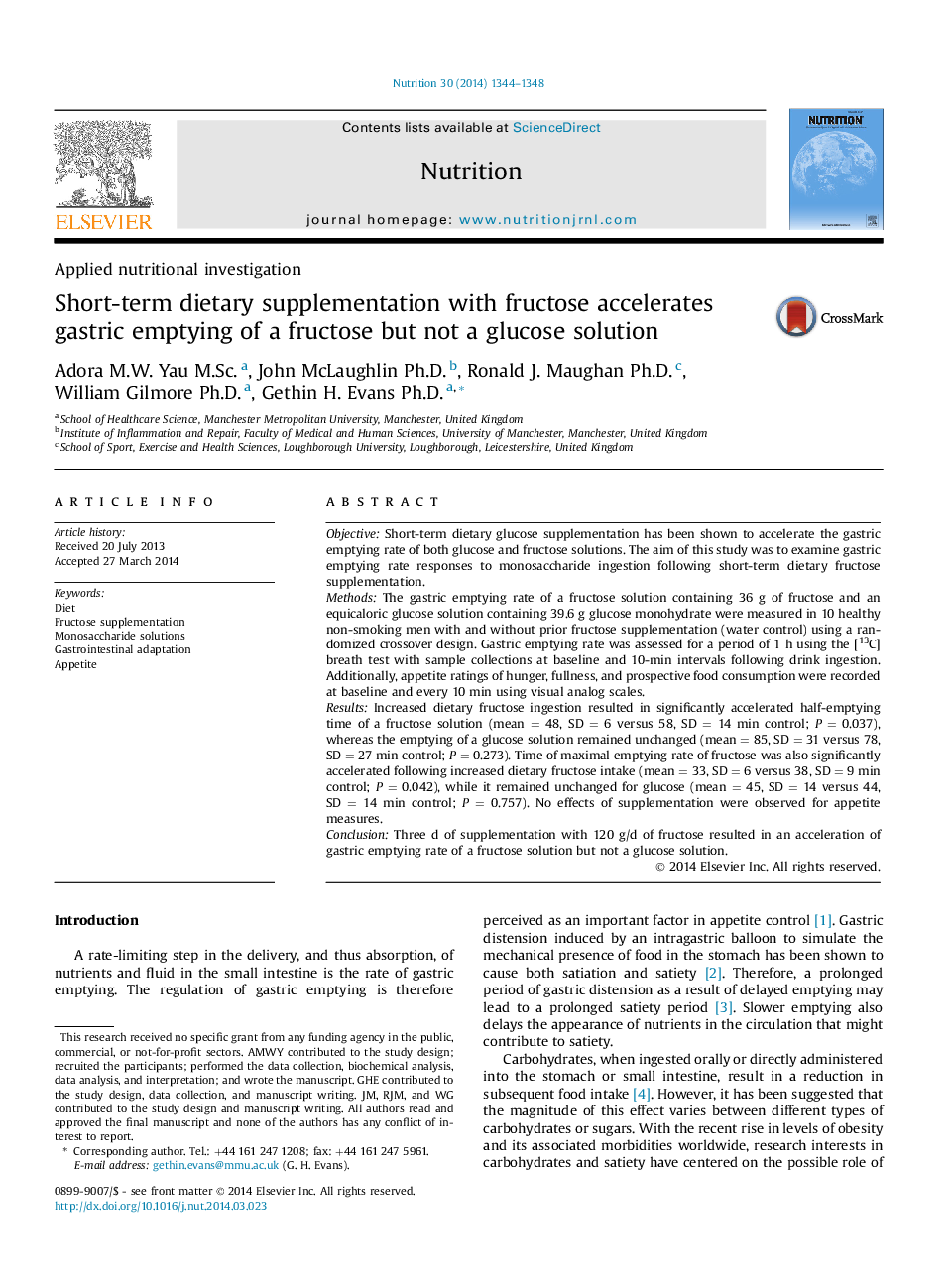| Article ID | Journal | Published Year | Pages | File Type |
|---|---|---|---|---|
| 6089352 | Nutrition | 2014 | 5 Pages |
ObjectiveShort-term dietary glucose supplementation has been shown to accelerate the gastric emptying rate of both glucose and fructose solutions. The aim of this study was to examine gastric emptying rate responses to monosaccharide ingestion following short-term dietary fructose supplementation.MethodsThe gastric emptying rate of a fructose solution containing 36 g of fructose and an equicaloric glucose solution containing 39.6 g glucose monohydrate were measured in 10 healthy non-smoking men with and without prior fructose supplementation (water control) using a randomized crossover design. Gastric emptying rate was assessed for a period of 1 h using the [13C]breath test with sample collections at baseline and 10-min intervals following drink ingestion. Additionally, appetite ratings of hunger, fullness, and prospective food consumption were recorded at baseline and every 10 min using visual analog scales.ResultsIncreased dietary fructose ingestion resulted in significantly accelerated half-emptying time of a fructose solution (mean = 48, SD = 6 versus 58, SD = 14 min control; P = 0.037), whereas the emptying of a glucose solution remained unchanged (mean = 85, SD = 31 versus 78, SD = 27 min control; P = 0.273). Time of maximal emptying rate of fructose was also significantly accelerated following increased dietary fructose intake (mean = 33, SD = 6 versus 38, SD = 9 min control; P = 0.042), while it remained unchanged for glucose (mean = 45, SD = 14 versus 44, SD = 14 min control; P = 0.757). No effects of supplementation were observed for appetite measures.ConclusionThree d of supplementation with 120 g/d of fructose resulted in an acceleration of gastric emptying rate of a fructose solution but not a glucose solution.
